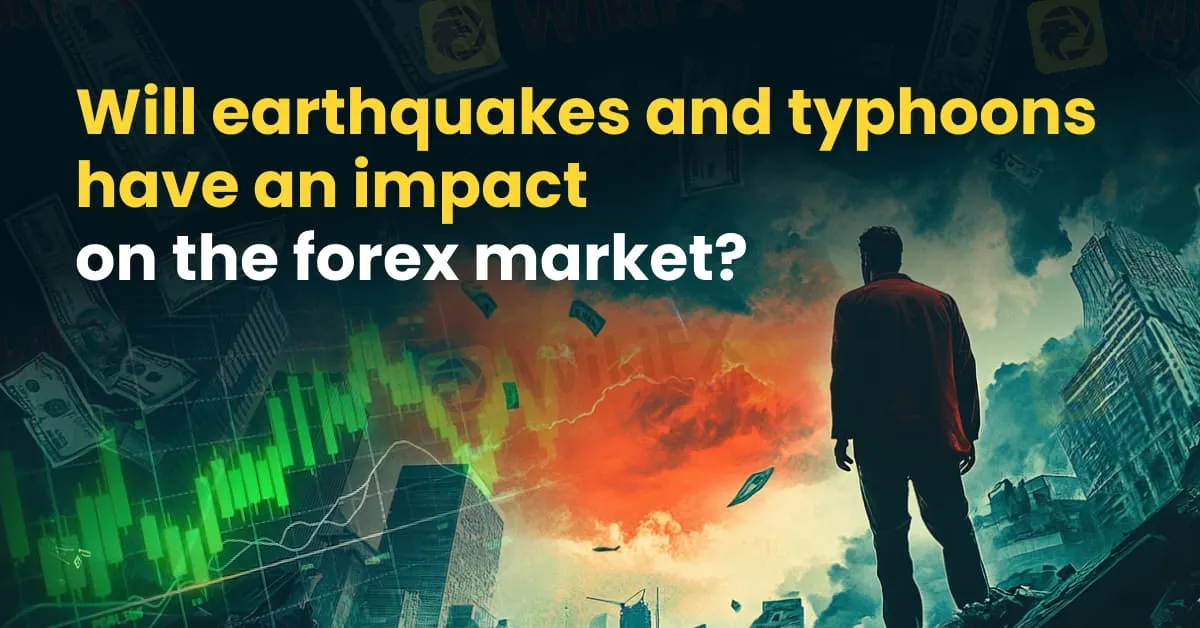Will natural disasters have an impact on the forex market?
Abstract:The forex market is known for its rapid responses to global events, but the influence of natural disasters, such as earthquakes and typhoons, can be less straightforward. While headlines may scream about catastrophic damage and economic disruption, the long-term effects on currency values often depend on a blend of immediate shock and underlying economic fundamentals.

The forex market is known for its rapid responses to global events, but the influence of natural disasters, such as earthquakes and typhoons, can be less straightforward. While headlines may scream about catastrophic damage and economic disruption, the long-term effects on currency values often depend on a blend of immediate shock and underlying economic fundamentals.
Forex Market Sensitivity to Global Shocks
At its core, the forex market is driven by investor expectations about economic performance. Global events—from political shifts to natural disasters—can introduce volatility. However, seasoned traders know that the market is forward-looking. A brief spike in volatility is common, but currencies eventually gravitate toward values that reflect long-term economic strength and policy direction. As noted by Investopedia, “global events can immediately affect exchange rates and currency values due to the interconnectedness of the forex marketplace.”
Earthquakes vs. Typhoons: Different Disasters, Different Impacts
Earthquakes
Earthquakes tend to have an immediate, dramatic effect because they often strike without warning and can severely damage critical infrastructure. A historical example is Japan‘s 2011 Tōhoku earthquake and tsunami. Despite the initial plunge in market confidence, Japan’s currency—while volatile—recovered as investors focused on the countrys robust economic fundamentals and reconstruction efforts. This case shows that even catastrophic events might only lead to short-term market disruptions if the long-term outlook remains positive
Typhoons
Typhoons, on the other hand, are usually forecasted days in advance. This lead time often allows governments and businesses to activate emergency measures and secure insurance payouts, which can mitigate the immediate economic shock. In regions prone to typhoons, such as parts of Southeast Asia, the impact on the forex market is typically localized. Although there might be temporary shifts—especially in sectors like agriculture and tourism—the overall currency value is less likely to suffer a prolonged decline, as reconstruction and relief measures quickly restore market confidence
Why the Forex Market Often Braces for the Storm
A key factor in the forex markets resilience is its forward-looking nature. Traders and investors focus on long-term fundamentals like GDP growth, monetary policy, and overall economic health. Even when a disaster introduces short-term uncertainty, if the underlying economic framework remains strong, the currency is likely to recover. Moreover, global financial networks—ranging from insurance mechanisms to international aid—help cushion the economic blow, limiting the sustained impact on exchange rates.
Strategic Considerations for Traders
For forex traders, understanding the nuanced impact of natural disasters is essential. Here are some strategies to consider:
- Risk Management: Use stop-loss orders and diversify exposure to limit potential losses during volatile periods.
- Hedging: Consider instruments like options or forward contracts to mitigate short-term risk.
- Stay Informed: Monitor both the immediate news and longer-term economic indicators, ensuring that decisions are guided by the broader economic outlook rather than panic.
Conclusion
While earthquakes and typhoons can induce short-term volatility in the forex market, their long-term impact is often moderated by the markets reliance on economic fundamentals and its forward-looking nature. Even in the face of dramatic natural events, well-prepared economies and effective risk management strategies can help stabilize currency values over time.

Read more

Broker Comparsion: FXTM vs AvaTrade
FXTM and AvaTrade are two well-established online brokers offering forex and CFD trading across global markets. Both enjoy strong reputations and high ratings on WikiFX—FXTM holds an AAA overall rating, while AvaTrade scores 9.49/10, indicating they’re regarded as reliable choices by the community. However, since brokers have great reputation in the industry, how do we know which one is more suitable for individuals to invest in? Today's article is about the comparison between FXTM and AvaTrade.

Pi Network: Scam Allegations Spark Heated Debate
A whistleblower report has surfaced, casting doubt on the legitimacy of Pi Network, alleging psychological manipulation, opaque operations, and potential financial exploitation. What is your take on this?

The Crypto Shift: Challenges and Opportunities for Traditional Brokers
Crypto exchanges are expanding into traditional asset classes like forex and commodities, blurring the lines with traditional brokers. Meanwhile, few brokers, like eToro, have successfully integrated crypto into their platforms, revealing both the opportunities and the challenges ahead.

Shocking Move: Yen Breaks Past 140 Barrier!
The yen's breakout above the 140 mark has caught global attention, and the reasons behind it are more than technical.
WikiFX Broker
Latest News
Love, Investment & Lies: Online Date Turned into a RM103,000 Scam
Broker Took 10% of User's Profits – New Way to Swindle You? Beware!
Pi Network: Scam Allegations Spark Heated Debate
Broker Comparsion: FXTM vs AvaTrade
Account Deleted, Funds Gone: A New Broker Tactic to Beware Of?
Broker’s Promise Turns to Loss – Funds Disappear, No Compensation!
StoneX Subsidiary, Gain Global Markets Bermuda, Penalized for Trading Misconduct
El Salvador and U.S. Launch Cross-Border Crypto Regulatory Sandbox
The Instagram Promise That Stole RM33,000
Coinbase Launches Bitcoin Yield Fund for Institutional Investors
Rate Calc
